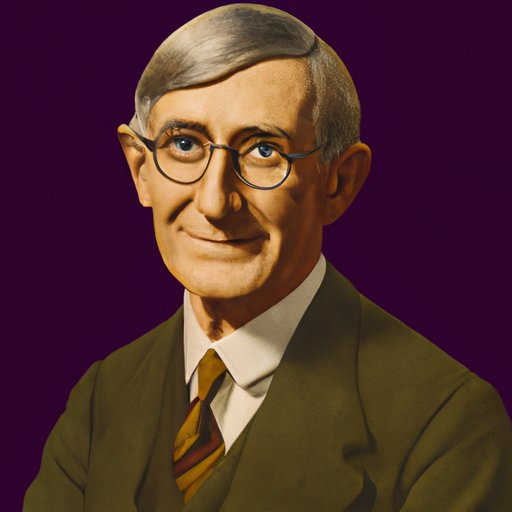Introduction
Woodrow Wilson is widely regarded as one of the most influential presidents in American history. He served two terms in office from 1913 to 1921 and is remembered for his progressive domestic policies and his role in World War I and the formation of the League of Nations. This article will assess whether Wilson was a good leader by examining his leadership style and legacy.
Analyzing Woodrow Wilson’s Leadership Style
Woodrow Wilson was known for his strong moral convictions and his commitment to progressive reform. He sought to create a more equitable society by introducing reforms that would promote economic growth and social justice. He was also an advocate for democracy and international cooperation, believing that nations should work together to achieve peace and stability. However, his leadership style has been criticized for its authoritarianism and lack of compromise.
Wilson was not afraid to use his executive power to push through his agenda, often without consulting Congress or other branches of government. He also had a tendency to be overly idealistic and inflexible, which led to conflict with other leaders. In addition, he was not always willing to listen to criticism or take advice, leading some to view him as stubborn and arrogant.
Examining the Legacy of Woodrow Wilson
Woodrow Wilson left behind a complicated legacy. On the one hand, he was responsible for many progressive reforms that improved the lives of millions of Americans. He also played a key role in bringing about the end of WWI and the formation of the League of Nations. On the other hand, his authoritarian style of leadership alienated many and ultimately led to the failure of the League of Nations.
When assessing Wilson’s legacy, it is important to consider both his domestic and foreign policies. While his domestic policies had a positive impact on the American economy and society, his foreign policy decisions were far less successful. This section will examine his policies in more detail.
Exploring Woodrow Wilson’s Domestic Policies
Wilson introduced a number of progressive reforms during his presidency. He created the Federal Reserve System and introduced income taxes to fund government programs. He also supported labor unions and passed a series of laws that aimed to protect consumers and promote fair business practices. His social policies included the passage of the Nineteenth Amendment, which granted women the right to vote.
Overall, Wilson’s domestic policies had a positive impact on the economy and society. They helped to reduce inequality and promote economic growth. However, they also caused resentment among those who opposed the increased regulation and taxation.
Investigating Woodrow Wilson’s Foreign Relations Strategies
Wilson was an ardent advocate of international cooperation and democracy. He believed that all nations should work together to maintain peace and stability. To this end, he sought to strengthen America’s ties with Europe and to promote the spread of democracy around the world.
Wilson played a key role in ending WWI and negotiating the Treaty of Versailles. He also proposed the Fourteen Points, a set of principles for establishing a lasting peace in Europe. Lastly, he was instrumental in the formation of the League of Nations, an international organization designed to promote cooperation between countries.
Despite these efforts, Wilson’s foreign policy initiatives were largely unsuccessful. The League of Nations failed due to opposition from the United States Senate, and Wilson’s idealistic vision of international cooperation was rejected by other European leaders. As a result, his legacy in foreign affairs is seen as mixed at best.
Conclusion
In conclusion, Woodrow Wilson was a complex leader whose policies had both positive and negative impacts. His domestic policies had a positive effect on the American economy and society, while his foreign policy initiatives were largely unsuccessful. Ultimately, it is difficult to judge whether Wilson was a good leader. His policies had a lasting impact on America and the world, but his authoritarian leadership style and refusal to compromise may have hindered his effectiveness as a leader.
(Note: Is this article not meeting your expectations? Do you have knowledge or insights to share? Unlock new opportunities and expand your reach by joining our authors team. Click Registration to join us and share your expertise with our readers.)
